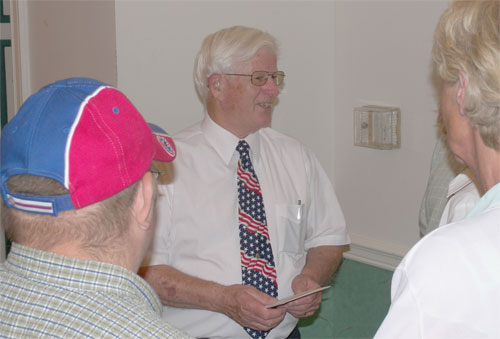12 Jul Do Others Have a Similar Passion?
Gary Dilley, Director of Global Ministries, 2001-2008
Mt. Pleasant UB church in Chambersburg, Pa., is partnering with a UB church in Mexico that has a big vision to make a difference in a city of 70,000 people. But they are wondering, “Could we work with other UB churches in North America that share our interest in Mexico? We would enjoy working with others and not just doing this on our own.” They have asked Global Ministries to work as a “clearinghouse” for churches and individuals interested in partnerships and ways God’s people can work together.
In a similar way, the Brown Corners UB church in Clare, Mich., has a passion for helping our churches in Nicaragua. The UB church in Fowlerville, Mich., is highly focused on church planting work in the Copan region of Honduras. Salem Chapel in southeast Ohio has involved itself with the new churches in San Jose, Costa Rica. A new church plant, Bethany House of the Lord, in Cumberland, MD, has intentionally sought to enhance kingdom work in Africa and India. These are just a few examples.
Working as partners enables you to do things you could never do on your own as a “Lone Ranger.” It’s a joy to watch UB churches work alongside each other, and alongside churches in other parts of the world. It may be helpful to know who else shares your church’s specific passions. This might also provide the opportunity to do a work team together, or to join forces to accomplish a specific project.
People in your church may have a passion for sports outreach ministry, and you wonder if other UB churches feel the same way, and if that can be used in cross-cultural ministry? Or perhaps your passion is in children’s ministry or music, or medical outreach, or leadership development, or in helping pastors’ families. The list could go on.
I’d love to get UB churches connected so they can do things like this together. Global Ministries is developing some ideas along this line, and plan to use the UBMissions.com website to help churches network with each other over places and projects. You’ll be hearing more about this. In the meantime, I’d love to hear from you about specific missions-related interests your church may have, whether it involves a country or a type of ministry.

